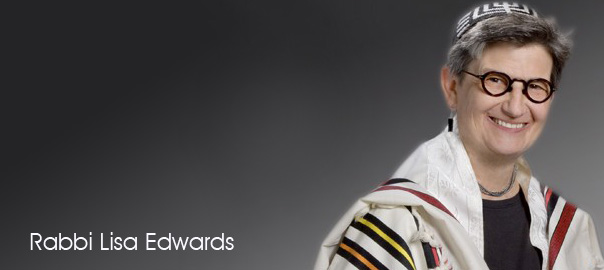Rabbi Lisa’s D’vrei Torah on URJ

We are very honored to announce that URJ has chosen our own Rabbi Lisa Edwards to give weekly D’vrei Torah for the entire Book of Numbers (B’midbar). As of yesterday, and for the next nine weeks, you can read (or listen to) our Rabbi’s commentary for the week’s Torah portion on “10 Minutes of Torah.” You can also subscribe to “10 Minutes of Torah” on URJ’s website.
The first commentary by Rabbi Lisa, titled “A Kinder, Gentler Nation,” was published yesterday and refers to B’MIDBAR, NUMBERS 1:1–4:20. Click here to listen.
This week brings us Yom Y’rushalayim (May 8 / 28 Iyar), one of several Jewish holidays commemorating events of war in the modern State of Israel. This one recalls Israel’s “recovery” of the Old City of Jerusalem during the Six Day War in 1967. Despite these modern holidays, or the always popular Israeli postcards of handsome young men and women in uniform, it seems safe to say that we Jews generally don’t think of ourselves as a military people.
Yet the coming together of Yom Y’rushalayim with our annual reading of the opening portion of the Book of Numbers, beginning with a census of all Israelite men “from the age of twenty years up, all those in Israel who are able to bear arms” (Numbers 1:3), might give us pause to question our assumption. In fact, from Abraham onward in Torah we find ourselves often embattled, and the fighting continues beyond Deuteronomy and into other books of Tanach as well.
Take the Israelite nation, for example, in this week’s Torah portion, B’midbar. Here’s the same crowd we witnessed a year and a month before, running hurriedly from Egypt, looking over their shoulders as they cross the parted sea, terrified by what lay behind and ahead. But in the beginning of B’midbar, “In the Wilderness,” they’ve become much more organized, some might say “civilized,” and the “proof” is that all the tribes are lining up in perfect order exactly according to instruction, surrounding their newly constructed sacred Tabernacle, preparing now to march through the wilderness toward the Promised Land.
The Book of Numbers shares its Hebrew name with that of the first portion, B’midbar.Why is the book called “Numbers” in English? Presumably because it begins with God’s instruction to Moses (and Aaron and a man from each tribe) to count the people: S’u et-rosh kol-adat B’nai Yisrael, “Take a census of the whole Israelite company” (Numbers 1:2). God immediately clarifies the command saying, kol-zachar, “all the men …” (1:2). (Note: Just a few months into the United States military leaders’ decision to allow women to serve in combat, it’s useful to remember that gender inequality is neither new nor ever easily overcome. But I’ll write more on that in discussing later portions of B’midbar.)
Read the full article on ReformJudaism.org




